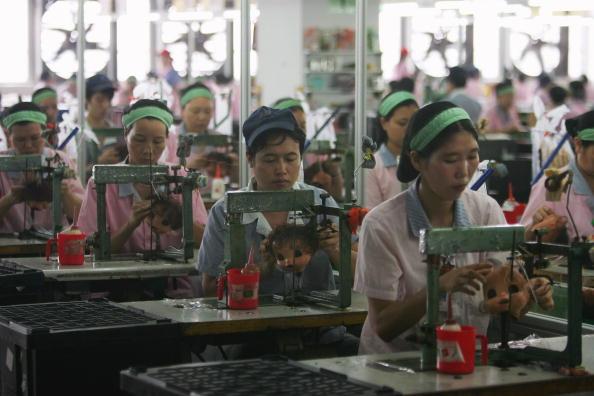Economists around the world rely on the economic data provided by official sources in China—even though its accuracy is suspect—simply because there has been no alternative.
An independent survey of economic conditions in China called the Chinese Beige Book tries to remedy this situation.
Its findings show that China’s economy slowed over the summer, contradicting official data.
“Accurate, up-to-date information on China’s economy is notoriously difficult to come by. Official statistics exist, but they lack transparency and their credibility has long been called into question,” the publisher of the survey, CBB International, states on its website.
Official data in the form of so-called “purchasing manager indices,” surveys of people responsible for purchasing input materials for their firms, showed an uptick in August.
China Beige Book’s survey, however, “reveals weakening gains in profits, revenues, wages, employment, and prices, all showing slipping growth on-quarter—no disaster, but certainly not the powerful expansion suggested by the consensus narrative,” CBB president Leland Miller and head researcher Craig Charney told Bloomberg News in a statement.
The CBB report is modeled after the Federal Reserve’s Beige Book and was first released in the second quarter of 2012. It includes interviews with over 2,000 executives across China.
The compiled responses “show the conventional wisdom of a renewed, strong economic expansion in China to be seriously flawed,” according to the statement by Miller and Charney.
Specifically, manufacturing and transportation weakened instead of picking up, as the official data suggested.
Jim Chanos, founder of New York-based hedge fund Kynikos Associates, has long been skeptical about Chinese economic data.
In 2012, he told Opalesque TV, “I have no doubt that if the Chinese government is forecasting 7.5 percent growth this year, no matter what is happening to the real economy they will print 7.5 percent or better.”
Officials Cooking the Books
Periodically, even official channels have had to admit government data is either completely wrong or at least manipulated.
In early September, China’s National Bureau of Statistics (NBS) admitted at least one county was cooking its books.
According to Sina News, the NBS announced Sept. 5 that a county in China’s Yunnan Province forced local industrial companies to report inflated manufacturing output figures.
Twenty-eight companies in Luliang County reported $1 billion in output (6.34 billion yuan), whereas the revised value was only $460 million (2.82 billion yuan) for 2012. In the first half of 2013, 25 companies reported $450 million (2.74 billion yuan), whereas the revised value was $160 million (1 billion yuan).
Typically, local governments wouldn’t return manufacturing surveys to the companies until the companies reported the desired figures. The companies then reaped the benefits, in the form of easier bank loans, for example.





